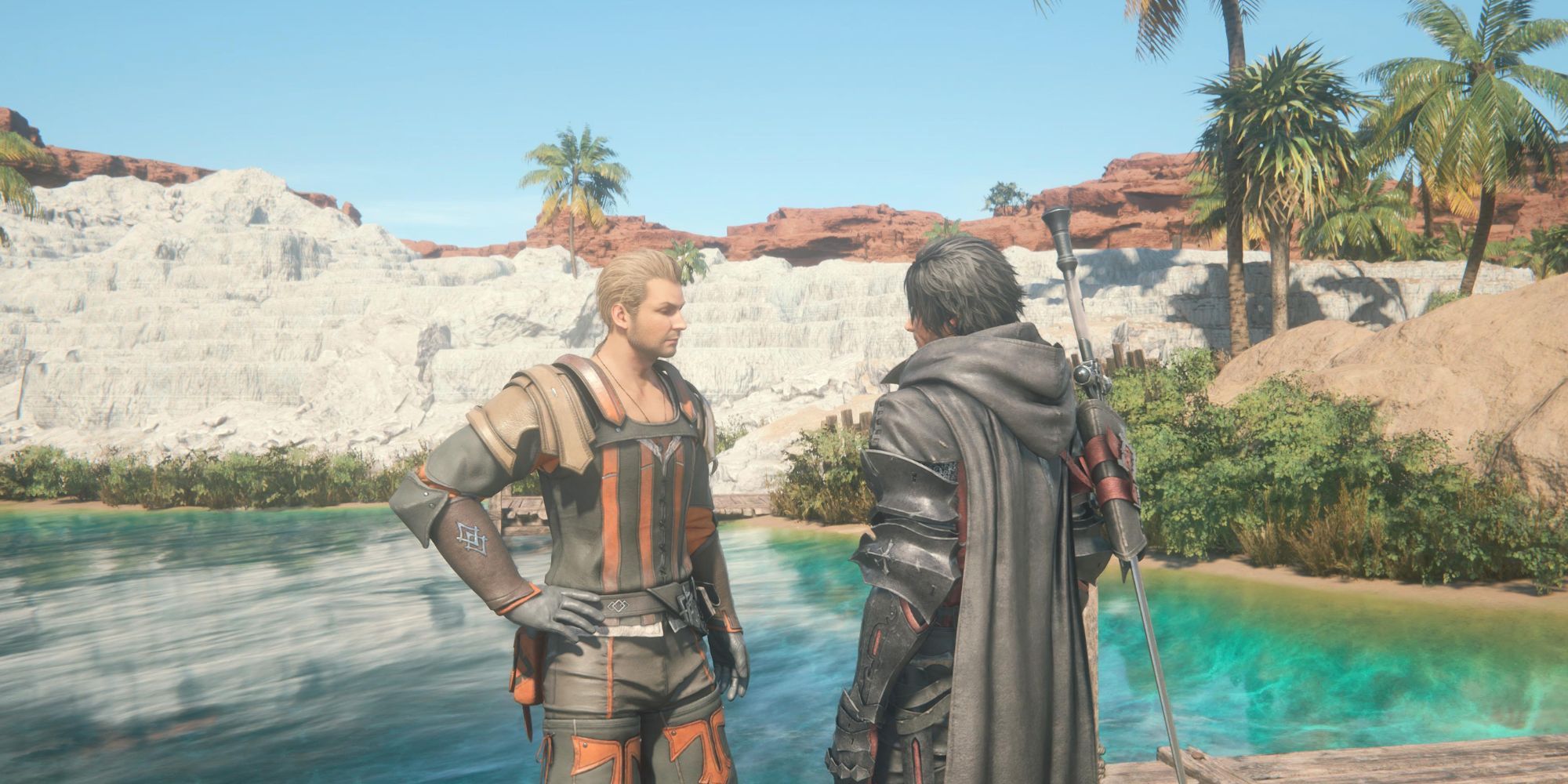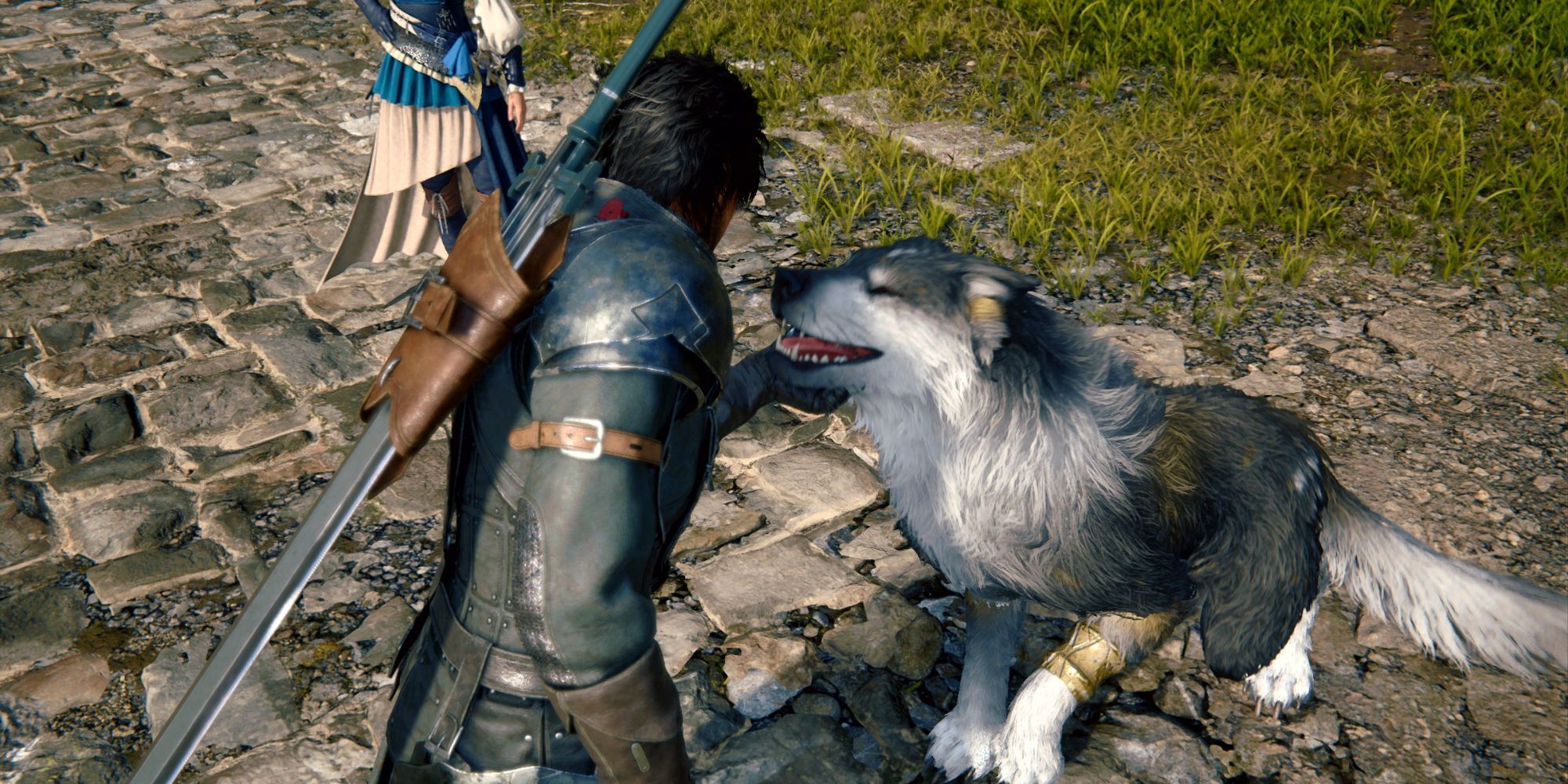Highlights
- Final Fantasy 16 introduces a realistic element by showcasing the protagonist's need for self-care and downtime between physically demanding encounters, making the hero more relatable.
- The game emphasizes the importance of sustenance and rest, with characters being shown eating, drinking, and taking breaks before engaging in battles, humanizing the experience.
- Clive's use of breathing techniques to calm himself and work through his emotions demonstrates a surprising and relatable method of dealing with anxiety, adding a realistic touch to the game.
Warning: This post contains SPOILERS for Final Fantasy 16
Heroes often carry superpowers, the courage to face up to doubt and danger, and a morally unflinching drive to fight for the greater good. While these attributes leave me starry-eyed in films and video games, there’s also a false sense of realism that comes with their marvelous portrayal that negates a relatable experience. Humans need to take an ibuprofen, drink a gallon of water, and lie on their ribs for a good period of R&R after something physically demanding, but the heroes in fiction rarely take a beat before they jump into the next encounter.
Final Fantasy 16 combines the best of both worlds by offering a resilient and relentless protagonist in Clive Rosfield, who’s hellbent on saving the world while remaining grounded as a human who needs to replenish his strength through a hearty meal or calm his nerves with breathing techniques. These subtle details often go unnoticed, but to someone who’s still annoyed Kevin McCallister didn’t get to eat his macaroni and cheese before the Wet Bandits arrived in Home Alone, the human element is a welcomed addition to Square Enix’s title.
During 16-year-old Clive’s mission to eradicate the Morbol in Stillwind, the game established the importance of self-care from the first encounter. Clive’s victory, with Wade and Tyler’s assistance, would have normally ended with the trio returning to Rosaria via a cutscene—a technique used during other points in the game to save time—barely fazed by their strenuous encounter. Instead, the three soldiers share a drink of water and catch their breath while brightening the mood with a bit of playful dialogue. This small detail immediately humanized an otherwise fantastical experience, making the heroic protagonist more relatable.
Sustenance is peppered throughout the game, including Clive’s meal with his uncle Byron in the Dhalmekian Republic after their long journey. The pair manage to eat and drink before a fight breaks out in the establishment, and Byron even keeps eating during the fight, appalled by the thought of wasting food in the name of violence. Tarja from The Hideaway and Joshua’a loyal assistant Jote are also constant reminders of the importance of rest and proper healing before going back out there, and they’re quite insistent on a full recovery. Tarja is frequently angered by Clive and Joshua’s aversion to rest, stating "Not back a blink and you’re already off solving everyone’s problems." After Clive and Jill’s confrontation with Barnabas at the bottom of the ocean, we later see the pair sitting disrobed by a fire, implying that they’re letting their wet clothes dry instead of moving onto the next encounter completely sodden.
Another example touches on the mental health side of self-care when Clive was desperately trying to prime as the Eikon Ifrit—a transformation he struggled to control during the first half of the game. Instead of channeling Ifrit through anger, or having the ability to prime magically come to him through fate—similar to Rey’s speedy ability to conquer the Force in Star Wars—Clive instead used breathing techniques to calm himself down, even though he was against the clock, and he directed his attention inwards in order to find Ifrit and channel him through a form of meditation. It’s a surprising method that shows Clive’s ability to work through his emotions with real-world techniques that are frequently used to negate anxiety, instead of forcing himself to prime through frustration.
Then there’s Torgal, Clive’s frost wolf friend, battle companion, and automatic affection magnet who you can pet and relentlessly feed treats to. Not only do the treats provide visual confirmation that the loyal canine is being fed, but the ability to pet him mirrors the bond I experience with my own furry friends in the real world and the positive affirmations I give to them after they accomplish something. In Nintendo’s case with The Legend of Zelda: Tears of the Kingdom, there’s no way to thank Epona for galloping across Hyrule and dodging certain death from the Bokoblins and Gloom patches, other than offering her an apple or a brief clap. While these sentiments mean nothing to a digital horse, the human aspect makes me feel satisfied that my companion’s morale is as good as it can be!
Even though I’d never be able to fight a Morbol or Coeurl in this world without being ripped apart, or transforming into an Eikon without losing my sanity, the inclusion of these small, relatable details makes me more empathetic to the whole experience and the main character I’m piloting. As someone looking for unique elements that increase the potency of escapism, it’s a tiny but powerful addition that most would not consider. It’s an applaudable addition that not only makes the characters more investable but also brings the experience of fictional heroes a little closer to our own.



